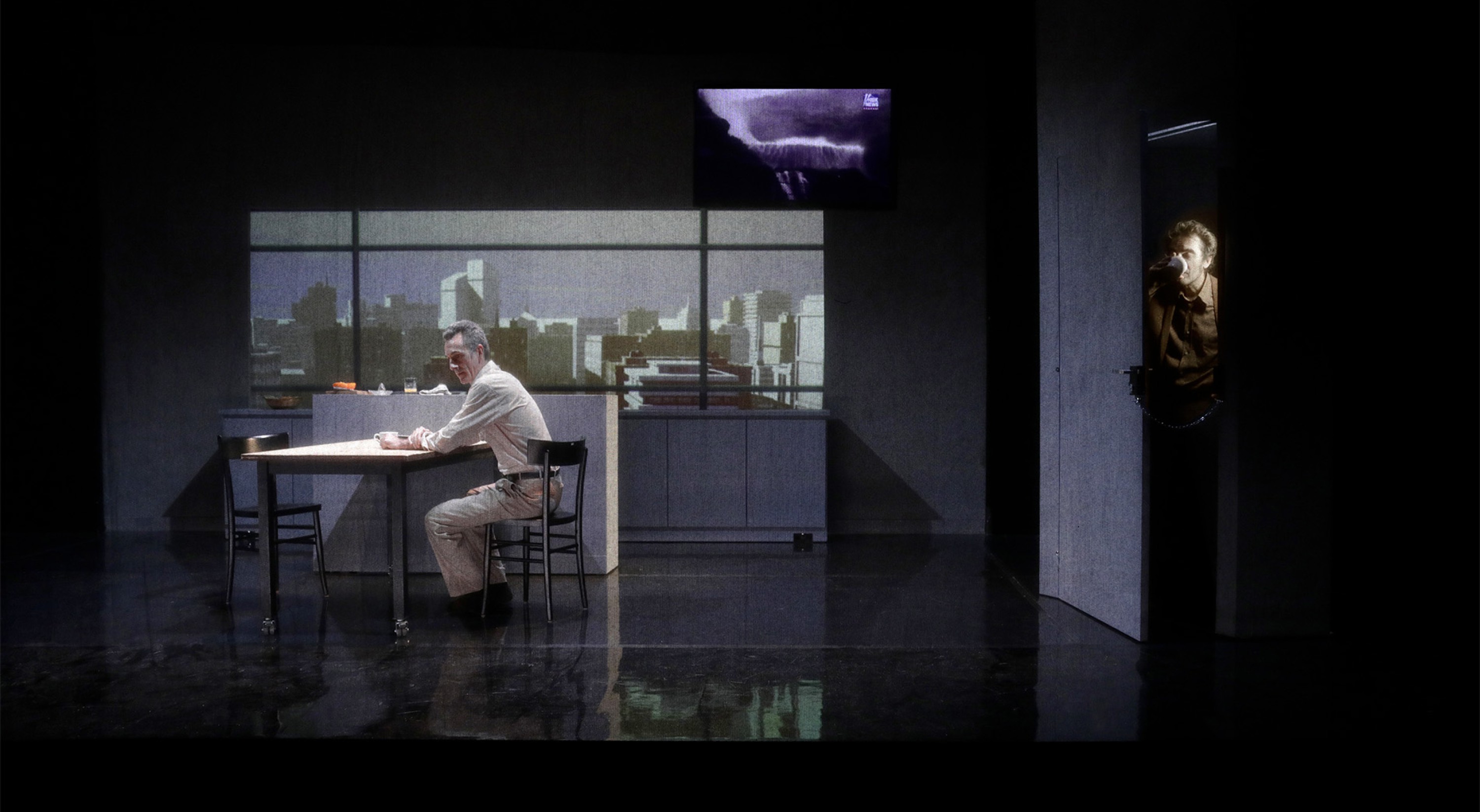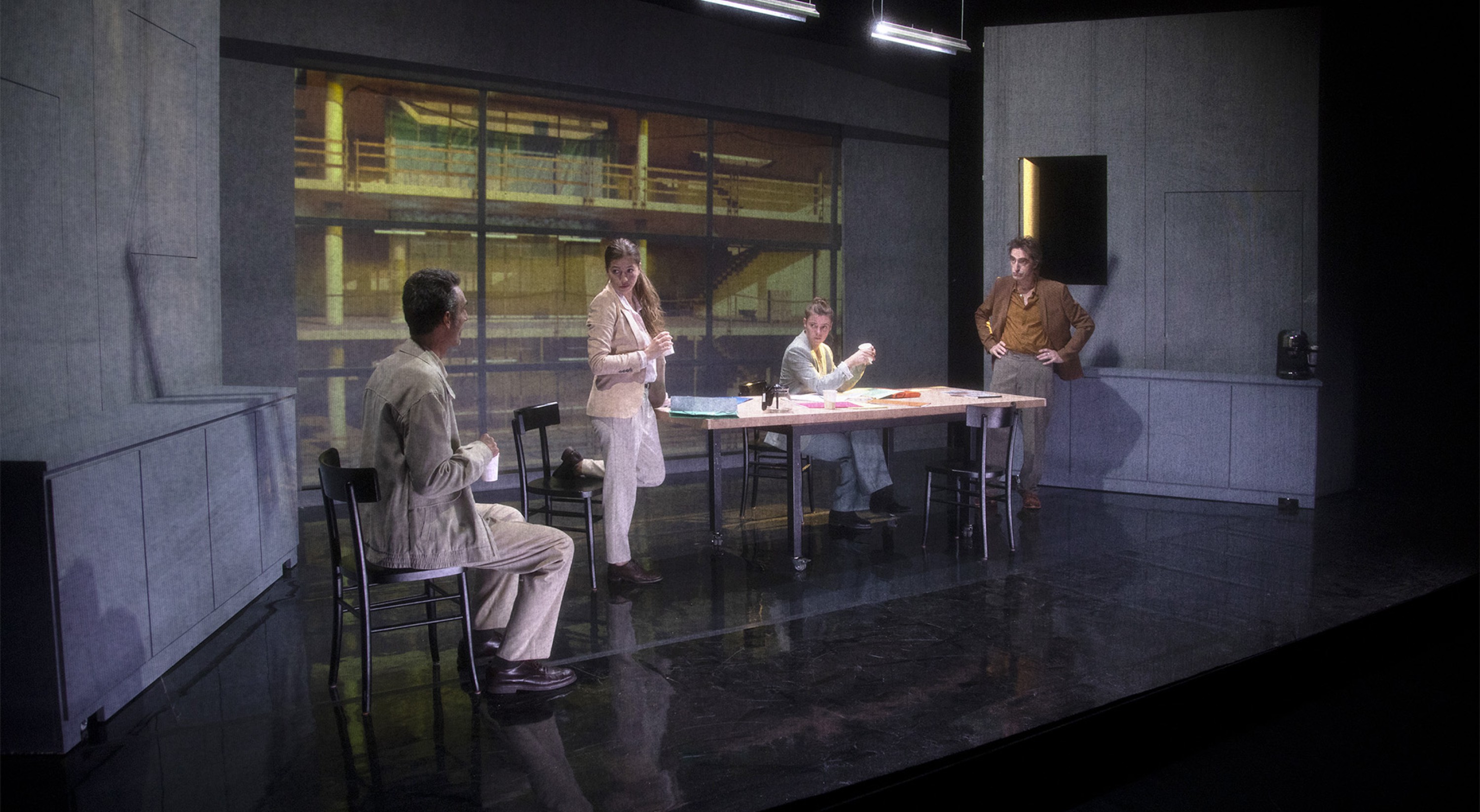Nicolas Liautard et Magalie Nadaud
Pangolarium
januaryjan 21
Text, staging, Nicolas Liautard, Magalie Nadaud
Featuring Sarah Brannens, Jean-Charles Delaume, Jade Fortineau, Fabrice Pierre, Célia Rosich
Stage design, digital creation, lucanus design: Damien Caille-Perret
Lights, César Godefroy
Music, Thomas Watteau
Costumes, Sara Bartesaghi Gallo, Simona Grassano
Prosthesisn Anne Leray
Colony (series)
Directed and edited by Christophe Battarel
Image and calibrationn Cyril Battarel
Assistant chief operator, Fanny Begoin
Music, mix, Thomas Watteau
With image support from Ivan Casian, Jürg Häring, Emel Hollocou, Swann Kébaïli, Amanda Wang, Noé Battarel, Aline Mauranges, Hélène Lapillonne, Alexandre Lapillonne, Catherine Loheac, Françoise Lestienne, Guy Chapus, Monique Duizabo, Olivier Duizabo
Décor, Ateliers Jipanco et Cie
General and set coordinator, Emeric Teste
Lights and video coordinator, Morgane Viroli
Set manager, Julie Znosko
Dissemination, Caroline Namer
Produced by Robert de profil
Co-produced by Théâtre Paris-Villette; Festival d’Automne à Paris With support from Ville de Paris, Fondation des Artistes/MABA – Maison d’Art Bernard Anthonioz, Théâtre de la Tempête à Paris and La Colonie de Condé-sur-Vesgre
Funded by Région Île-de-France
How can we unravel fiction from reality? What are the foundations for reinventing society? These important issues raised by the younger generations are at the heart of this show for younger audiences. In this epic poem about a child in search of free-thinking spirit, science fiction and pop culture are brought together to thought-provoking effect.
The body of Murphy, aged twelve, is covered in scales. Her appearance, similar to the pangolin, an endangered species found in Africa and Asia, separates her from the world. She has been brought up by her father high up in a block of flats, and never goes out. Screens are her only source of knowledge about the outside world, though she still does not have the means to distinguish fiction from reality. One day, the disappearance of her father prompts to go beyond the front door of her flat for the first time. She sets off in search of “The colony”, a free-thinking community which is the subject of a series of which she is an avid viewer, and that she takes for reality. As Murphy’s epic poem evolves, several different threads come into existence before finally converging. In a staging which leaves ample space for the spectacular and the fantastical, the utopian theories of Charles Fourier make inroads into the questions of bio-ethics and society. What emerges is a generation in search of meaning, at odds with traditional models of society. The richness of this story takes younger audiences on a thought-provoking journey of the imagination.


